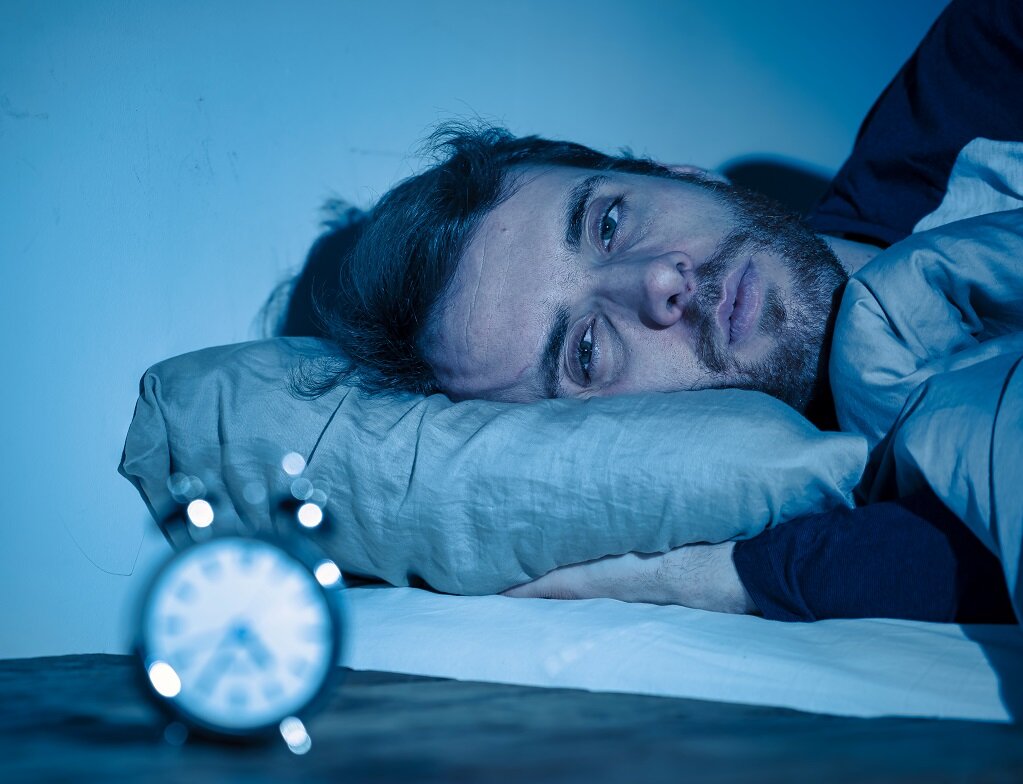It is not uncommon for many of us to listen to music all day long. Some people even purposefully listen to music right before bedtime with the aim to decompress. However, it turns out that listening to music before going to sleep can be detrimental to sleep quality. This goes especially for the kind of music that causes so-called ‘earworms’.
These and other insights are the result of research done by Baylor University scientists led by the director of Baylor University's Sleep Neuroscience and Cognition Laboratory, Dr. Micheal Scullin. Their findings have been published in the journal Psychological Science listed below this article.
Listening to music right before bed might not be the best idea - Image Credit: goffkein.pro via Shutterstock / HDR tune by Universal-Sci
What is an Earworm?
The researchers investigated the connection between listening to music and sleep, concentrating on a rarely-explored mechanism: involuntary musical imagery, more commonly known as "earworms."
Most of us 'suffer' from an earworm from time to time. An earworm occurs when a specific tune or song replays over and over in a person's mind. It is common for these types of phenomena to occur during the day when we are awake. However, the Texan researchers discovered that they could also take place when aiming to fall asleep.
Earworms have a significantly negative impact on sleep quality
The research finds its fundament in two different studies. One laboratory experiment involving 50 participants that got their heart rate, brain waves, breathing patterns, and other variables recorded during sleep. The second study was survey-based, questioning people's music listening habits and the frequency at which earworms occur.
Dr. Sculling explained that they played three popular and catchy songs right before the participants went to bed. The team randomly allocated participants for listening to the original versions of those songs or the de-lyricized instrumental versions of the songs.
Participants then responded if and when they encountered an earworm. After that, the scientists analyzed if these earworms impacted their nighttime sleep physiology.
Following the results, it appears that people who frequently encounter earworms during nighttime are six times as likely to have poor sleep quality in contrast with people that rarely encounter earworms at all.
Now you can’t get it out of your head… - Image Credit: Sam Wordley via Shutterstock / HDR tune by Universal-Sci
Unexpectedly, researchers discovered that instrumental music is likelier to generate earworms and disturb sleep quality than lyric-based music.
Participants who contracted an earworm had more problems falling asleep, spent more time in the so-called light stages of sleep, and had more frequent nighttime awakenings.
How can I get rid of an earworm?
Contracting an earworm can be a very annoying experience. So how do you get rid of it?
One way to get rid of an earworm is to entirely focus on an activity, task, or problem that helps distract your brain from that one song in your head. Scully advises to spend five to ten minutes drawing up a to-do list for the next day. Or simply to write down some thoughts in your head.
As an additional benefit, previous research has shown that taking the time to write down forthcoming tasks can mitigate commonly experienced worrying thoughts about the future that we tend to experience during the night.
One last piece of advice from Scully focuses on timing. It is a sound idea to simply avoid listening to music right before bedtime altogether.
If you are experiencing sleep problems, consider checking out our articles on the topic of sleep quality like this one: An increasing number of us are experiencing sleep problems: four common causes and some advice (more listed below)
Also, be sure to check out the paper listed below if you are interested in the details of the research we have covered in this article.
Sources and further reading:
If you enjoy our selection of content, consider subscribing to our newsletter
FEATURED ARTICLES:











